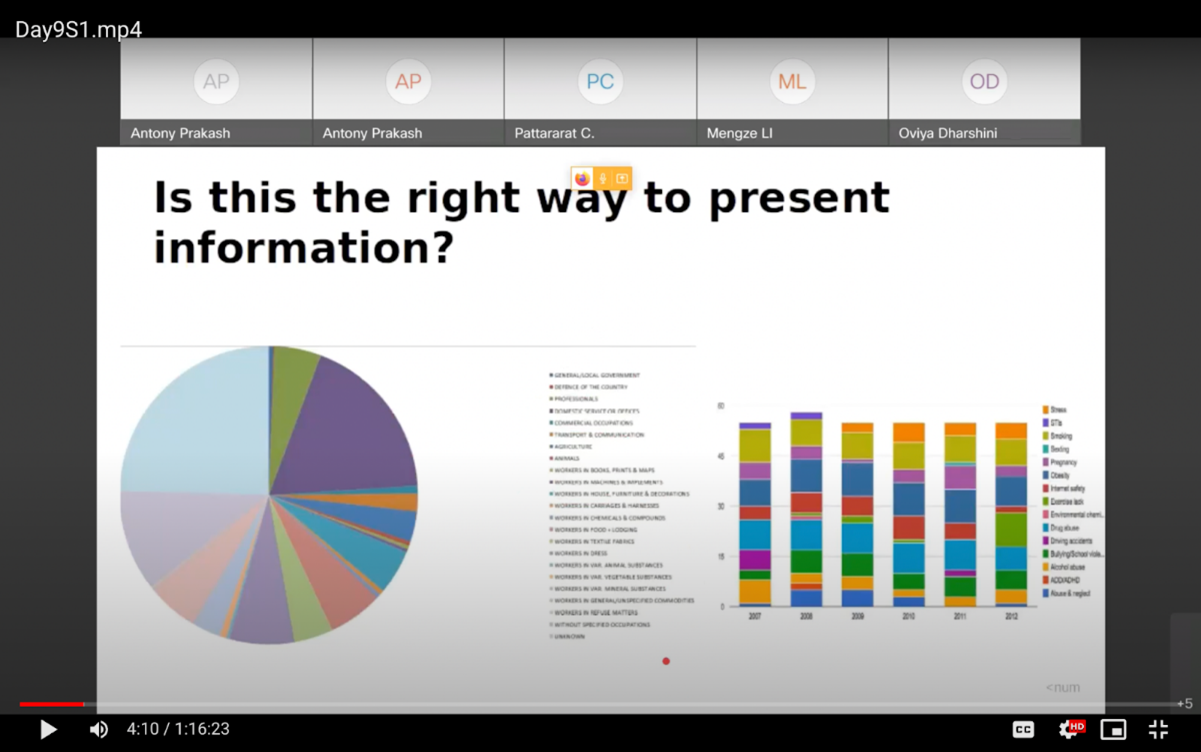The AUA Overseas Study Program "Artificial Intelligence in Education (AIED)” was hosted online by IIT Bombay from 23rd May, 2022 to 3rd June, 2022. The 10-day long program was designed to introduce the learners to the application of artificial intelligence in one of the most promising domains today- Education. The course was uniquely designed to give the students an experience of what prospects and challenges may arise from data generated by learners in a variety of educational setups, and what novel technologies are available today to address such hurdles.
A diverse set of 23 student participants from ten universities across Asia took part in the program - University of Yangon, National University of Singapore, Peking University, Tsinghua University, The Hong Kong University of Science and Technology, Chulalongkorn University, Nazarbayev University, Seoul National University, Universitas Indonesia, and Indian Institute of Technology Bombay.
During the program, the students were taken through a curated set of asynchronous video lectures delivered by the instructor of the course, which were accompanied by daily live online interactions with the instructor and TAs. Some of the topics covered included introduction to machine learning, introduction to python programming, different levels of analytics, data privacy, data visualisation, machine learning, descriptive analytics, diagnostic analytics, pattern and process mining, and multimodal learning analytics.

A presentation during the class
During the first three days, the learners were introduced to python programming on a new adaptive learning platform called Pyguru developed at the Department of Educational Technology, IIT Bombay. The program had two major assignments and a course project as part of its assessment, where the students had to work in groups of three. For the first assignment, the learners were introduced to multiple machine learning algorithms through a unique learning strategy called jigsaw learning. For the following assignment, the learners applied these machine learning techniques using easy-to-use new machine learning tools. The course had several collaborative and active learning strategies.

The live interactions had several active learning strategies like Think-Pair-Share
One highlight of the course was the final course project, in which students were given the opportunity to have hands-on experience with real-world digital educational data and apply their learnings of the course. The students were introduced to a publicly available dataset called Open University Learning Analytics Dataset (OULAD), which contains data about seven courses, students, and their interactions with a digital learning environment (Dataset available at:https://analyse.kmi.open.ac.uk/open_dataset). The last two days of the program were focused on the course project and presentations by the groups.
Based on the experience and feedback of the participants, the program was well-received and reflected the AUA's objectives of inculcating scientific temper in higher education students through a multi-cultural learning environment and promoting cultural exchanges among the students. In the long run, such programs develop a deeper understanding of Asia's different cultures among the students and help them evolve into responsible global citizens.
Provided by Indian Institute of Technology Bombay